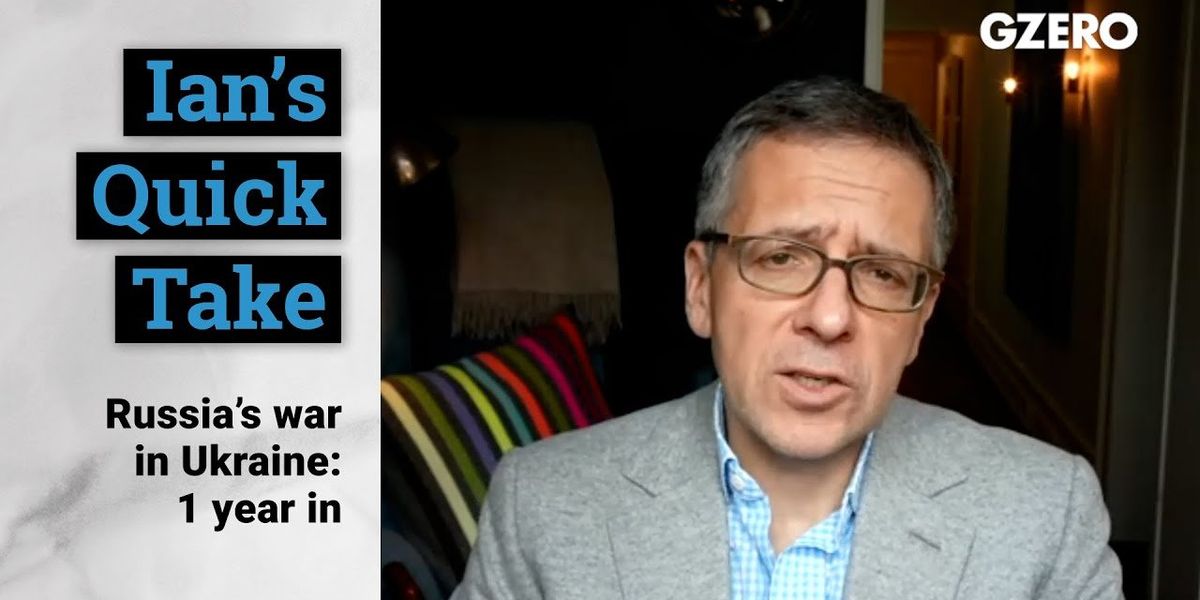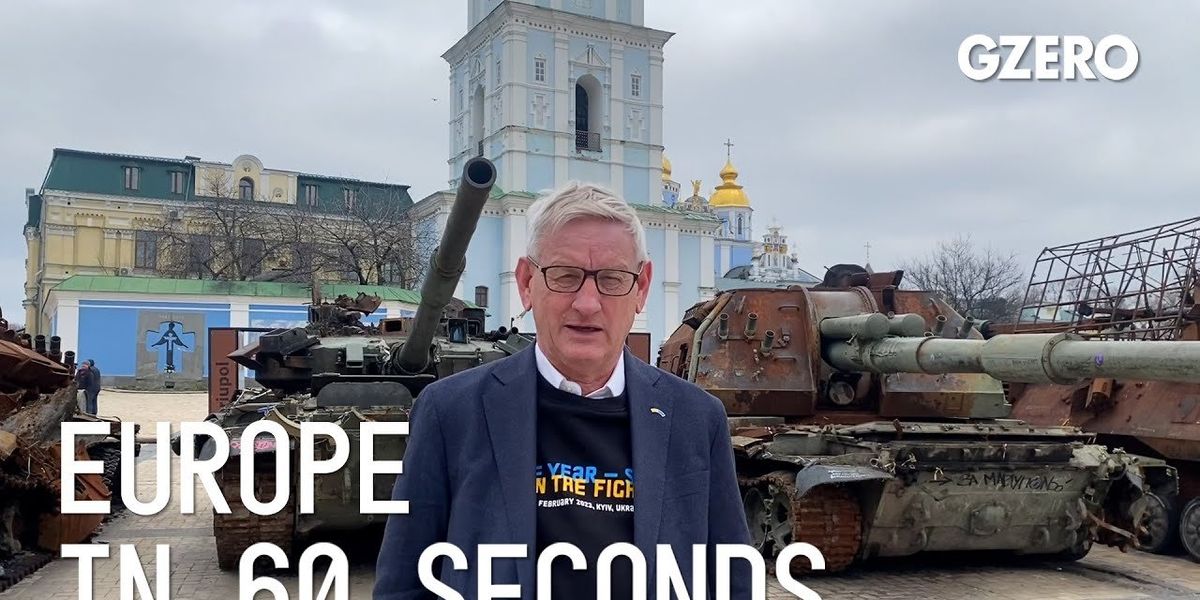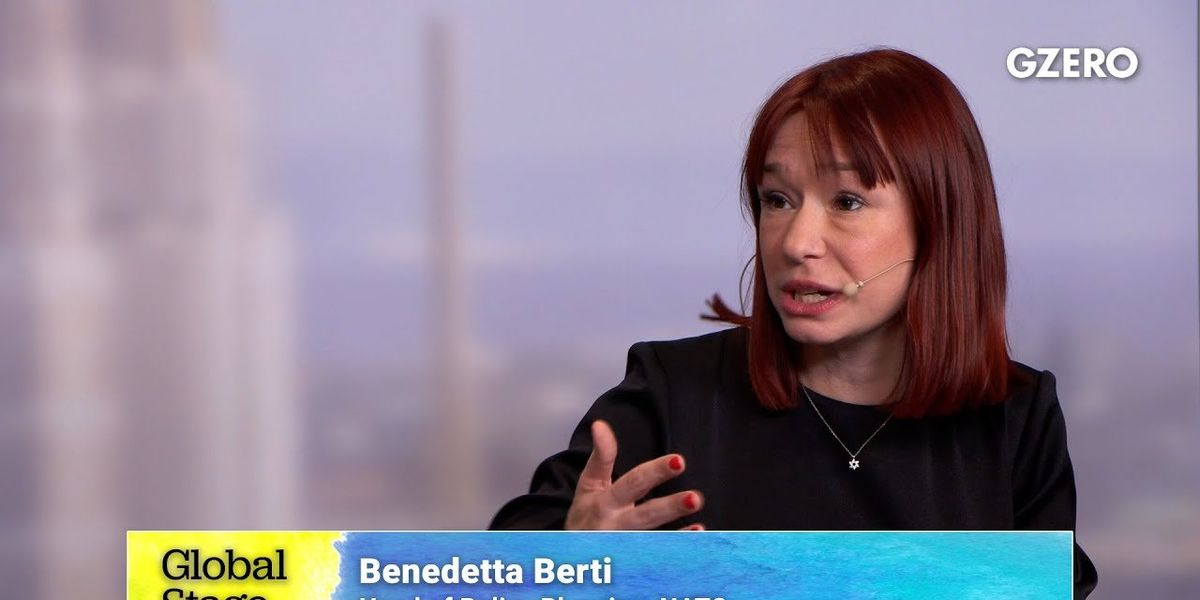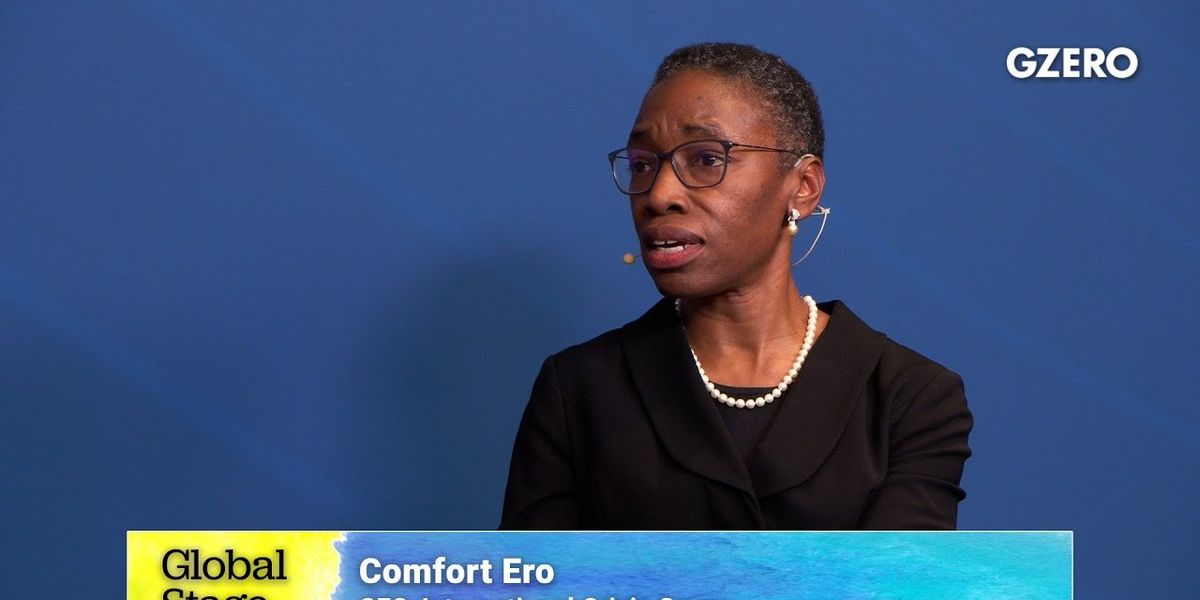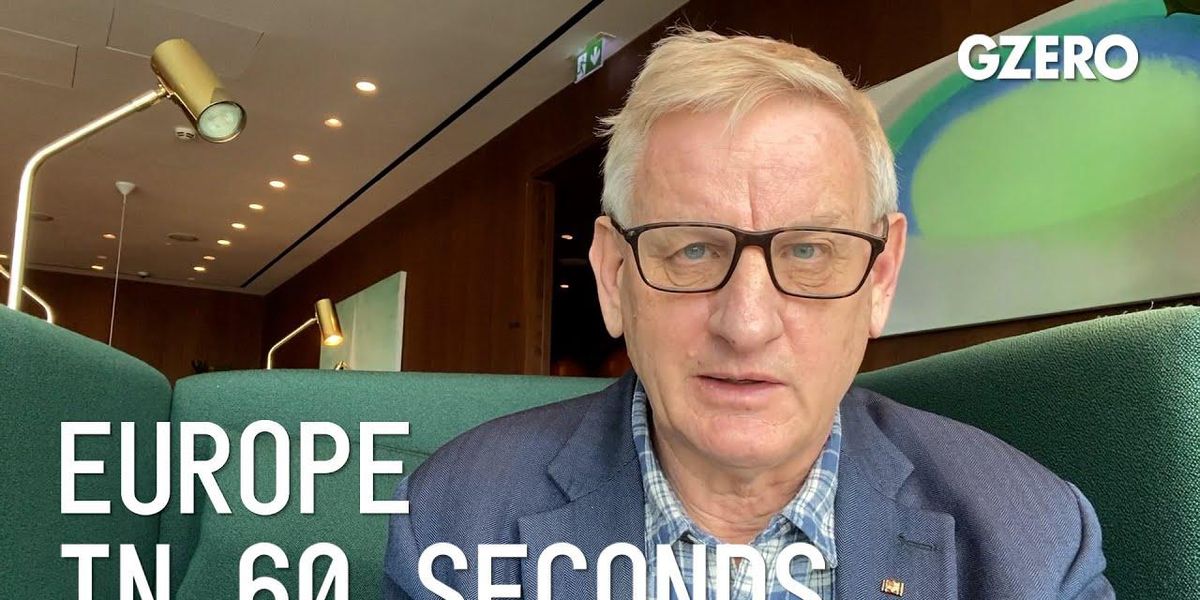Trending Now
We have updated our Privacy Policy and Terms of Use for Eurasia Group and its affiliates, including GZERO Media, to clarify the types of data we collect, how we collect it, how we use data and with whom we share data. By using our website you consent to our Terms and Conditions and Privacy Policy, including the transfer of your personal data to the United States from your country of residence, and our use of cookies described in our Cookie Policy.
{{ subpage.title }}
Car drivers queue to fill their fuel tank at a TotalEnergies gas station in Nice as petrol supplies are disrupted by a strike of French refineries and depots, France, March 20, 2023.
Hard Numbers: French oil refinery blockades, China’s mRNA milestone, Moscow comes to Bali, IMF tweaks rules for Ukraine, TikTok hearing
13: As French protesters continue to strike and block oil refineries in response to the government’s recently passed pension reform, 13% of petrol stations around the country are running short on gas. What’s more, a lack of shipments from LNG terminals is raising fears of shortages – and elevated prices – across Europe.
1: China has finally approved its first mRNA COVID vaccine for emergency use. Beijing says that the drug shows high rates of protection when administered as a booster, though it provided few other details.
22,000: Most Russians fleeing conscription and oppression have gone to Georgia, Armenia, and even Turkey. But many have also fled to faraway … Bali. Now, Bali’s governor has asked Indonesia’s central government to rescind a rule allowing Russians and Ukrainians to apply for visas upon arrival, pointing to the fact that 22,000 Russians arrived on the island in January alone. Jakarta introduced the measure to get a post-COVID tourism bump, but some say the newcomers are ruining the island’s zen.
15.6 billion: The IMF has agreed to a preliminary loan for Ukraine worth a whopping $15.6 billion, the biggest package for Kyiv since Russia’s invasion began in Feb. 2022 – though it still needs to be approved by the board. In order to get this deal across the line, the IMF, whose main shareholder is the US, recently changed a rule to allow loans to go to countries facing “exceptionally high uncertainty.”
5: The Federal Reserve hiked interest rates by a quarter point, bringing its key short-term interest rate up to 5%. The decision signals that the Fed is continuing its campaign to temper inflation and consumer price increases, even after the recent banking turmoil.
150 million: That’s how many of its users TikTok claims are US-based, according to its CEO, Shou Zi Chew. On Thursday, Sou will testify before a US House committee hearing to answer questions about the suspected ties of ByteDance, TikTok’s parent company, to China’s ruling Communist Party amid growing calls for a US ban.
A diminished Russia and uncertain Ukraine
Ian Bremmer's Quick Take: Hi everybody, Ian Bremmer here, and it is one year after Russia's invasion in Ukraine has begun. The war, of course, continues to persist. What do we think about it and where are we going from here?
Well, first point is that in terms of the impact on the global environment so far, what we have is the Ukrainians suffering massively, the Russians expending enormous amounts of military capacity and trying to continue to rebuild it. The Europeans coming together with the United States in unprecedented fashion, NATO, the EU, the G7 much stronger and more cohesive than they were before. But also, the Europeans in particular shouldering a lot of those economic costs because they're the ones that can't do business with the Russians anymore, they have to spend much more on their own defense, and they're going to be fighting an asymmetric war with Russia as a rogue state going forward.
So end of the peace dividend permanently for the Europeans, while the Russians are increasingly decoupled from the West, a rogue state from the West. What does that mean going forward? It means that the Ukrainians can still very much lose this battle on the ground if the West were to no longer support them to the degree that they presently have been, but that the Russians are clearly losing globally in terms of their position on the global stage as a global partner.
NATO expanding, massive increases in capabilities for the Ukrainians economically, militarily as a principal enemy of Russia, and of course the Baltic states: Poland, the Nordics, all the frontline countries dealing with Russia even on the other side of the Russians massive geographical expanse, the Japanese as well.
Now, going forward, we do not know what's going to happen on the ground in Ukraine. We know that the Ukrainians are trying as hard as they can to get more ammunition from the United States and allies that would allow them to engage in a new counter-offensive, probably in April or in May, really depends on how quickly and how much of that ammunition they're able to secure, it can't just come from the US if they don't have enough. It has to come from other countries as well, South Korea certainly providing some, Israel, some others.
It's not about planes, F-16s, it's really not about tanks, it's about ammunition, and it's about continuing to train and stand-up Ukrainian troops on the ground that can fight. So when that happens, there's a lot of uncertainty about what the fight is going to look like on the ground. The Ukrainians might take a fair amount of territory, they might just take a little, or maybe the Russians with more troops are able to hold their defenses.
But either way, we're not looking at Ukraine being able to retake all of the territory they've lost since February 24th, and we're certainly not looking at Russia being able to push back and take Kyiv, remove Zelensky. If anything, Russia would maybe consolidate control over two of four of the territories that have illegally annexed, Donetsk and Luhansk.
At that point, there is a more open question about whether negotiations will go forward. Let's keep in mind back in September, October, the White House position was do everything you can to support the Ukrainians, see how much land they can get back, and then we can maybe talk about negotiations. They did that, the Ukrainians took some territory, no talk of negotiations. The Ukrainians still want to fight. They don't want to give up any land. The West isn't forcing them too.
That is going to play out again over this spring and summer, questions will be to what extent the Ukrainians think they can still afford to continue this fight, and is the West still providing the same level of support, and are they believed to be willing to going forward? Republicans getting softer, some independents, Europeans watching the Americans very carefully on this front, an electoral cycle playing out in the US. Lots of things that potentially go a little bit more wrong for the Ukrainians than over the course of the first year.
So I do think we're starting to see a little more softness in the coalition in the coming six months than we have over the last year. Clearly, the Russians are aware of that, Putin's aware of that, the Ukrainians are as well that's why they don't want to fight forever. They understand that they need to get as much support as humanly possible so that they can move the war more in their direction in the near-term.
Also, a country aware of it, China. The fact that the Chinese have decided to put their thumb on the scale with a peace plan right now does reflect the fact that they see nobody in the West pushing for negotiations, but the West starting to get a little weaker in terms of their coalition. So the Chinese see space, and the very interesting thing about their 12-point plan is that if you didn't know it came from China, the Indians could have written it, the Brazilians could have written it, the South Africans could have written it.
This was carefully put together by the Chinese to describe the overall perspective of a majority of the world's population, pretty much the entire developing world who supports Ukrainian territorial integrity in a way the Russians obviously don't, don't want to see nukes use, weapons of mass destruction used, but also want an end to sanctions, and want a cease-fire. That is the position of the so-called Global South, and China basically got there first.
Now, the United States hasn't had very much to say about it. They're certainly not going to support a Chinese peace plan, especially when the Ukrainians are not going to get behind. But that provides some space for the Russians to say we are more aligned with the Chinese, also facilitates Xi Jinping going to Moscow in the coming weeks or months, which I fully expect he will do, and that makes the Chinese geopolitical position stronger from their perspective.
Now, the one thing that I would be surprised by is if the potential threat to provide direct military support goes through from China. Because if they do that, then the Americans and Europeans come much stronger together, not just on Russia, but also on China, which is the opposite of what Xi Jinping with his charm offensive has wanted over the course of the past couple of months. He's trying to get his economy back in order and he wants to engage more with everyone on the business and economic side, not just with the developing world.
So that's where we are. Ukraine is in a position where they can lose a lot more than they have lost already. The Russians, on the other hand, cannot win on the global stage. Their economy will be more and more constrained over time. Their security position will be worse and worse over time. That is all about Putin's own misjudgment.
I think that in a year's time, we will not be spending this much time talking about Ukraine. Instead, we will broaden the aperture on the war. We will talk much more about. I fear that is where we're going ahead. I wish it were not the case. I hope I'm wrong, but that's where I think we're presently going.
So that's it for me, I hope everyone's well, and that's your one anniversary of the Russian invasion of Ukraine.
Ukraine war will last as long as Putin is in power
Carl Bildt, former prime minister of Sweden, shares his perspective on European politics from a slightly chilly Kyiv:
24th of February 2022 is going to redefine the future of Europe. That was one year ago. Putin launched his insane attempt to get rid of Ukraine by military invasion. The verdict so far? Ukraine has really stood up, forming a heroic defense. It's been a strategic failure so far of a massive proportion for Russia and for Mr. Putin. The West has come together, Europe, America. A vote in the UN General Assembly earlier today, 141 nations called for Russia to immediately withdraw its troops from Ukraine. The future? Peace is not imminent. We don't know what's going to be the outcome of the battle, the battlefield is not too far from here, or what is to come. But what we need to do is to secure the future of Ukraine, membership of the European Union, of NATO by one way or the other, and change in Russia. This conflict will go on as long as Mr. Putin sits in the Kremlin. One year has passed, many years lie ahead of us in this part of the world.
- China to shake up Russia-Ukraine war ›
- Hard Numbers … after a year of war in Ukraine ›
- Time favors ... Ukraine or Russia? - GZERO Media ›
- Biden’s visit to Ukraine signals US commitment, but war gets tougher ›
- Putin would rather die than admit defeat in Ukraine, says former Croatian president ›
- A diminished Russia & uncertain Ukraine - GZERO Media ›
We should not underestimate Putin, says NATO’s Benedetta Berti
The war in Ukraine may not have gone the way Vladimir Putin expected, but his objectives remain the same.
“I don’t think we underestimated Russia’s strategy and what they were planning in Ukraine … If anything, maybe at the beginning we had overestimated the Russians’ military capabilities,” says Benedetta Berti, NATO’s policy planning chief, during a Global Stage livestream conversation hosted by GZERO in partnership with Microsoft at the Munich Security Conference.
NATO has strengthened its defense posture while reinforcing its deterrence, and Ukrainians have broken the myth of Russian invincibility. But, she adds, it would be a strategic mistake to underestimate what Russia can do in the future.
Watch the full Global Stage Livestream conversation here: Is there a path ahead for peace in Ukraine?
Many knew Putin wasn't bluffing, but not how far he'd go, says International Crisis Group’s Comfort Ero
People rightfully focus on conflict prevention and deterrence, but global policy lagged behind when it came to preparing for the Russian invasion.
“What surprises me is that no actor says they’re surprised by what happened. You ask yourself, what about the steps that ought to have been taken?” says Comfort Ero, president and CEO of the International Crisis Group, during a Global Stage livestream conversation hosted by GZERO in partnership with Microsoft at the Munich Security Conference.
Some argue that the original sin was perhaps not dealing with the crises in Georgia and Crimea, she adds. Moving forward, she says, NATO and the West must focus on having anticipatory policies that prevent military aggression.
Watch the full Global Stage livestream conversation “Live from Munich: Ukraine and the Global Turning Point.”
North Korean leader Kim Jong Un with his daughter Kim Ju Ae at a banquet in Pyongyang, North Korea.
Hard Numbers: North Korea bans a name, US inflation stays warm, aid trucks cross into Syria, Ukrainians freeze sperm
0: The number of North Korean girls who are allowed to have the same name as Supreme Leader Kim Jong Un’s daughter Kim Ju-Ae is now, reportedly, zero. Young Ju Ae, who is thought to be around 11 years old, has recently been in the spotlight inspecting weapons with her dad and appearing on postage stamps.
6.4: Annual inflation in the US fell by just a tenth of a point in January, to 6.4%, disappointing expectations that price growth would ease further in the world’s largest economy.
10: A fleet of 10 UN humanitarian aid trucks crossed from Turkey into Syria on Tuesday via the Syrian side’s Bab al-Salam border post. This is the first time since 2020 that the Syrian government has opened the checkpoint to allow aid trucks into this part of the country, parts of which are held by opposition forces.
100: Since the Russian invasion, a clinic in Kyiv has frozen the sperm of about 100 Ukrainian soldiers. “It’s not scary to die,” one man told the AP, “but it’s scary when you don’t leave anyone behind.”
Podcast: Authoritarians won’t defeat American values, says John Kerry
Listen: John Kerry, former US Secretary of State and current climate czar, pushed back against the idea that this will be "the century of the authoritarian" in a GZERO World interview with Ian Bremmer at the Munich Security Conference (before the invasion of Ukraine). If China and Russia have been on a sort of authoritarian honeymoon because they think America is declining, "that is a very serious misconception,” he said, because "Americans will unite and come together" if threatened. Meanwhile, both China and Russia face a looming demographic crunch.
Subscribe to the GZERO World Podcast on Apple Podcasts, Spotify, Stitcher, or your preferred podcast platform, to receive new episodes as soon as they're published.Putin invasion of Ukraine: Worst outbreak of war since 1939
Carl Bildt, former Prime Minister and Foreign Minister of Sweden, shares his perspective from Europe on the Russian invasion of Ukraine.
The worst has come to happen. The Putin invasion of Ukraine that we now see unfolding is the worst outbreak of war that we've had since Hitler invaded Poland in September of 1939. The same motives, the same technique, the same lies leading up to it. What will happen now remains to be seen. Sanctions will have to be imposed very fast and very thoroughly, although that particular policy of deterrence has obviously failed, but it was good to try. We must help the fight in Ukraine. We must treat the Putin regime in the way that it deserves in all single respects. And we are heading bleak days when it comes to the security of Europe in the next few days. Transatlantic solidarity will be absolutely key.
